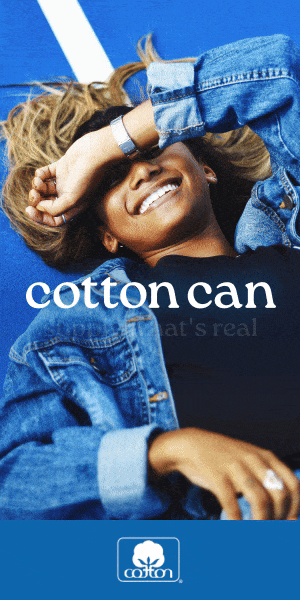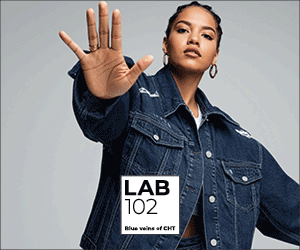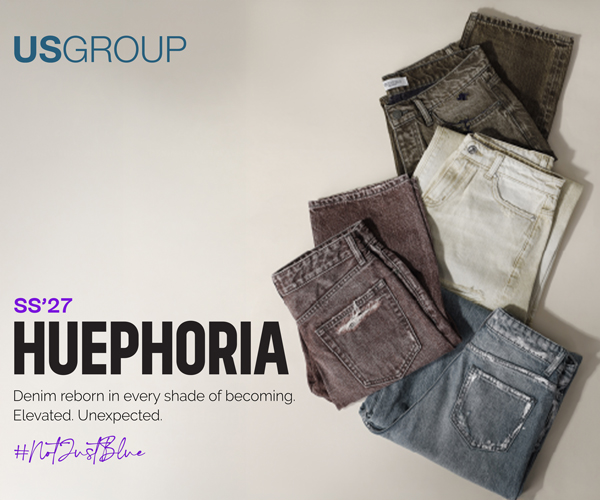Sandya Lang: Knowledge is power

Sandya Lang, Nudie Jeans’ sustainability manager, is passionate about improving conditions for workers in the supply chain, as well as reducing the brand’s environmental impact.
Swedish brand Nudie Jeans was launched in 2001 with a vision of being “the most sustainable denim brand”. Social improvements, traceability and sustainable materials are central to its ethos and, over the past year, its warehouse and head office became GOTS certified, enabling it to sell GOTS-certified products. For the second year, it mapped its entire supply chain’s water data and CO2 emissions, and invested in carbon offsetting to cover the business’s full emissions. Around 94% of its fibre usage is organic cotton, with 326,991 kg used in 2020. Nudie Jeans is available in 50 markets, and is sold in Nudie Jeans Repair Shops, online and at third-party retailers.
Q: Can you tell us briefly about your role?
A: My role is the sustainability manager, where I have the overall responsibility for our sustainability work and sustainable strategies for the future. In addition, I work practically with social compliance in the supply chain, in particular with living wage and supply chain transparency.
Nudie belongs to initiatives such as Fair Wear, Fairtrade, Chetna Organic Coalition and Sag Salim, which empowers Turkish cotton growers. Which strategies have the most impact, why is the social aspect a big focus for you?
All of the initiatives are equally important, it is all about taking our responsibility throughout the supply chain and we collaborate with initiatives that can make a difference and impact for the workers along the chain. The environmental part is often easier to quantify, like the amount of hazardous chemicals, pesticides, CO2 emissions and water amounts, for example, and maybe that’s why we have seen brands focused on that over the years, as it has been more difficult to get quantified data on the social aspects. But we believe it is as important to work to improve the social conditions along the supply chain.
One has to remember that garments are made by humans, often in countries far from Sweden, and it should be the responsibility of all brands to work with improving the social conditions for the employees in the factories we produce the garments in, as well as the environmental improvements needed.
Some of the initiatives you mention are also integrated in our purchasing practices, for example, forecasting for cotton volumes, paying our share of living wages at selected suppliers and a fair price for the cotton. This is something that ideally all brands should take more responsibility for.
What do you look for in these type of partners?
The initiatives we team up with fill a function and a purpose. They are selected to help us work with complex and difficult issues in the supply chain. The organisations should ideally have a very local approach, seeking to empower and build capacity at the different tiers of the supply chain.
Nudie values organic cotton as the ‘gold standard’ and it is the most used fibre. Why is this, and how do you deal with any supply issues such as the market saw last year?
Yes, we have used only certified organic cotton for all our denim since 2012 and for all our other cotton products since 2017. Over the years, we have built partnerships with our fabric manufacturers and they know that we are having a stable need for organic cotton. In cases where we work directly with the fabric manufacturers who have direct contact to the organic farms, we have been less impacted. It may also help that we give forecasts on the organic cotton volumes we will be using for the Indian production of organic cotton, for example.
Nudie says it is looking to expand the fibre portfolio with new sustainable materials and pre- or post-consumer recycled fibres. Which new fibres do you find interesting?
During this year, we have focused a lot on post-industrial/pre-consumer but also post-consumer recycling and we have some interesting processes in the pipeline. Regarding the post-industrial/pre-consumer recycling, we have been part of a pilot with UNIDO where we take responsibility for the second choice garments and have given them a new chance as input in a new denim fabric.
The majority (73%) of Nudie Jeans contain 1-3% elastane and 4-8% recycled polyester. What challenges does this create in terms of recycling, and how do you balance sustainability issues with customer preferences (ie for stretch)?
Yes, it is a challenge to balance, but in the recycling process we can use a mix with up to 3% polyester or elastane, however most of our garments include 1-2% elastane. For garments with other compositions including polyester, for example, we are looking into other solutions or products that can be made with leftover garments.
Transparency is a big issue for Nudie, and you produce detailed reports to show how you work and where you source. You have mentioned you are trying to track the source of some of your polyester, elastane and polyamide. Why are these fibres difficult to trace?
We have come quite far in terms of product transparency, but not for all materials. Polyester, elastane and polyamide are some of those materials. The reason is that we buy very low amounts and there isn’t traceability or transparency in the same way as with the cotton supply chain. We need to prioritise our efforts and considering the small amount we use of these materials, we haven’t come to have full traceability yet.
How do you communicate your message to your customers and keep a loyal following, given the prices are a little higher than perhaps the High Street?
We work with long-term relations, even at consumer level. We offer a membership to our community and the customers can benefit from a lot of services. Free repairs, for example. We put a lot of effort into informing and educating the store staff, and we add value to the products by having a transparent supply chain, letting them know that the products are made with sustainable materials and under fair working conditions.
Looking at the industry more widely, what changes do you see on the horizon?
I see that the industry is moving towards more circular business models, where activities we have been doing for many years are now gaining new ground, such as repairs, second hand and recycling. I also see the need for a transparent supply chain – that is key to due diligence in the supply chain and taking responsibility for human rights and environmental issues at the lower tiers.
Sandya Lang has led Nudie’s sustainability team since 2011.
Credit: Nudie Jeans













